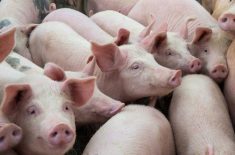LONDON, U.K. (Reuters) – Britain’s Food Standards Agency has said it would recommend a relaxation of rules on the sale of older cattle in favour of extensive testing, years after controls were introduced to stem the spread of bovine spongiform encephalopathy.
The agency said it was recommending the ban on meat from cattle older than 30 months be replaced with testing of older animals in two stages for BSE.
Cattle born after August 1996 could be allowed into the British food chain after being tested for BSE at the earliest from January 2004, it said.
Read Also

Going beyond “Resistant” on crop seed labels
Variety resistance is getting more specific on crop disease pathogens, but that information must be conveyed in a way that actually helps producers make rotation decisions.
And if the over 30 months rule is replaced, then any cattle testing positive for BSE would have to be destroyed, the FSA said.
The British ban on meat from cattle older than 30 months was introduced in 1996 when scientists made a probable link between BSE and variant Creutzfeldt-Jakob Disease (vCJD) in humans.
“Our view is that replacing the over 30 months rule with testing is acceptable on public health grounds,” FSA chief John Krebs said.
“We were also mindful that 99 percent of any possible infectivity is removed by other BSE controls and that there has been a continual and steep decline of BSE in the U.K.,” he added.
The number of cattle of BSE in Britain has fallen from a peak of more than 37,000 in 1992 to less than 600 last year.















